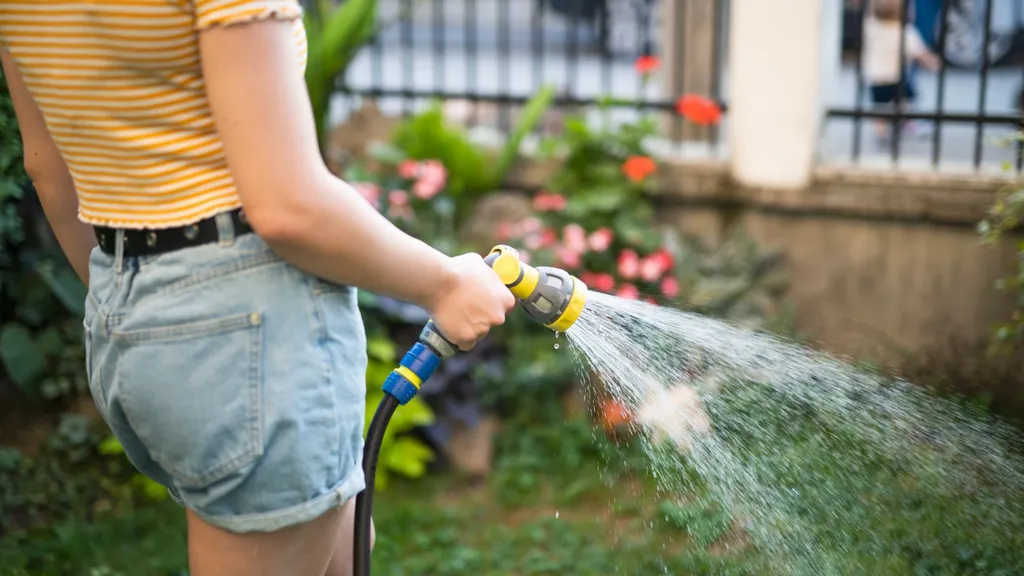Southern Water has announced a hosepipe ban affecting nearly one million people in Hampshire and the Isle of Wight due to prolonged dry weather and critically low water levels in local chalk streams. The restriction, set to begin at 09:00 BST on Monday, will apply to activities such as watering gardens, washing cars, and filling paddling pools.

What It Is
The ban affects:
-
791,000 customers in 336,000 properties across Hampshire
-
144,000 customers in 75,000 properties on the Isle of Wight
The River Test and River Itchen the primary water sources for the region are experiencing flows 24% below normal levels. The Environment Agency has classified the Solent and South Downs region as facing “prolonged dry weather.”
The move follows similar bans by Thames Water, Yorkshire Water, and South East Water. People caught breaching the ban could face fines up to £1,000.
So What? Insights
Southern Water is facing mounting scrutiny, not just from customers but also environmental groups and trade unions. The GMB union highlighted the company’s infrastructure issues, pointing out that over 100 million litres of water are lost daily through leaks. Southern Water’s own figures put that number at 91 million litres.
Despite efforts to use technology like drones, sensors, and even sniffer dogs to detect leaks, the company admits it must almost double its current repair rate to meet Ofwat’s 2030 targets.
At the same time, critics note Southern Water’s recent history of environmental damage, including a £90 million fine in 2021 for sewage discharge across the region.
Quick link: Emma Watson Banned From Driving After Repeated Speeding Offences
Key Implications
-
Public Frustration: Customers are expected to conserve water while infrastructure issues remain unresolved.
-
Environmental Impact: The ban aims to protect rare ecosystems, especially the chalk streams that support species like the Atlantic salmon and southern damselfly.
-
Regulatory Pressure: The water industry is under pressure from Ofwat and DEFRA to modernize and prevent future shortages.
-
Long-Term Water Security: Water Minister Emma Hardy cited a need for urgent action, including a £104 billion plan for nine new reservoirs and leak-preventing infrastructure.
Practical Takeaways
-
Follow the Rules: Avoid using hosepipes for any purpose, violations could cost you £1,000.
-
Conserve Water: Use watering cans or recycled water for gardens and skip unnecessary car washes.
-
Stay Informed: Check updates from Southern Water or your local council to avoid penalties and stay compliant.
-
Pressure Mounts on Providers: Expect further scrutiny of water companies’ leak prevention and infrastructure investment.
Final Thoughts
Southern Water’s hosepipe ban may feel like déjà vu for many, but it’s a clear signal that the UK’s water infrastructure is under strain and not just from the weather. While the focus is on customer compliance, attention is also shifting toward corporate accountability. Until major reforms and investments materialise, it seems the burden of water conservation will fall largely on the public.
Stay Ahead Effortlessly with SoWhat?
Want to stay informed without endless scrolling? SoWhat? is your AI-powered insights assistant, delivering concise, personalised reports on world events straight to your inbox every 24 hours. Stay sharp. Stay informed. Get your free daily report HERE.













**mind vault**
mind vault is a premium cognitive support formula created for adults 45+. It’s thoughtfully designed to help maintain clear thinking
**prostadine**
prostadine is a next-generation prostate support formula designed to help maintain, restore, and enhance optimal male prostate performance.
**sugarmute**
sugarmute is a science-guided nutritional supplement created to help maintain balanced blood sugar while supporting steady energy and mental clarity.
**gl pro**
gl pro is a natural dietary supplement designed to promote balanced blood sugar levels and curb sugar cravings.
**vitta burn**
vitta burn is a liquid dietary supplement formulated to support healthy weight reduction by increasing metabolic rate, reducing hunger, and promoting fat loss.
**mitolyn**
mitolyn a nature-inspired supplement crafted to elevate metabolic activity and support sustainable weight management.
**prodentim**
prodentim an advanced probiotic formulation designed to support exceptional oral hygiene while fortifying teeth and gums.
**synaptigen**
synaptigen is a next-generation brain support supplement that blends natural nootropics, adaptogens
**zencortex**
zencortex contains only the natural ingredients that are effective in supporting incredible hearing naturally.
**yusleep**
yusleep is a gentle, nano-enhanced nightly blend designed to help you drift off quickly, stay asleep longer, and wake feeling clear.
**nitric boost**
nitric boost is a dietary formula crafted to enhance vitality and promote overall well-being.
**glucore**
glucore is a nutritional supplement that is given to patients daily to assist in maintaining healthy blood sugar and metabolic rates.
**wildgut**
wildgutis a precision-crafted nutritional blend designed to nurture your dog’s digestive tract.
**breathe**
breathe is a plant-powered tincture crafted to promote lung performance and enhance your breathing quality.
**energeia**
energeia is the first and only recipe that targets the root cause of stubborn belly fat and Deadly visceral fat.
**boostaro**
boostaro is a specially crafted dietary supplement for men who want to elevate their overall health and vitality.
**pineal xt**
pinealxt is a revolutionary supplement that promotes proper pineal gland function and energy levels to support healthy body function.
**prostabliss**
prostabliss is a carefully developed dietary formula aimed at nurturing prostate vitality and improving urinary comfort.
**potentstream**
potentstream is engineered to promote prostate well-being by counteracting the residue that can build up from hard-water minerals within the urinary tract.
**hepatoburn**
hepatoburn is a premium nutritional formula designed to enhance liver function, boost metabolism, and support natural fat breakdown.
**hepatoburn**
hepatoburn is a potent, plant-based formula created to promote optimal liver performance and naturally stimulate fat-burning mechanisms.
**cellufend**
cellufend is a natural supplement developed to support balanced blood sugar levels through a blend of botanical extracts and essential nutrients.
**prodentim**
prodentim is a forward-thinking oral wellness blend crafted to nurture and maintain a balanced mouth microbiome.
**flow force max**
flow force max delivers a forward-thinking, plant-focused way to support prostate health—while also helping maintain everyday energy, libido, and overall vitality.
**revitag**
revitag is a daily skin-support formula created to promote a healthy complexion and visibly diminish the appearance of skin tags.
**neuro genica**
neuro genica is a dietary supplement formulated to support nerve health and ease discomfort associated with neuropathy.
**sleeplean**
sleeplean is a US-trusted, naturally focused nighttime support formula that helps your body burn fat while you rest.
**memorylift**
memorylift is an innovative dietary formula designed to naturally nurture brain wellness and sharpen cognitive performance.